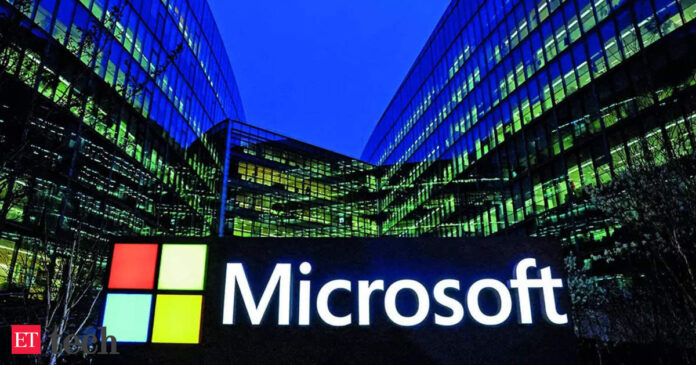Microsoft’s AI Tech Deal with UAE Firm Raises Security Concerns
Microsoft’s potential deal with UAE’s AI firm G42 raises national security concerns
Microsoft President Brad Smith recently unveiled that the company’s significant agreement with the United Arab Emirates (UAE)-backed AI firm G42 could lead to the transfer of advanced chips and AI technology tools. This revelation has sparked concern among U.S. lawmakers regarding national security implications.
The partnership, which marks a high-profile collaboration in the tech industry, could move into a second phase involving the export of crucial AI components, such as model weights, essential for determining an AI system’s power. Smith emphasized that there is no set timeline for this phase yet.
U.S. officials have previously expressed concerns about the national security risks posed by AI systems, including their potential use in developing weapons of mass destruction. The Biden administration has taken steps to require detailed disclosures from the creators of large AI systems.
For the deal to advance, it would need approval from the U.S. Department of Commerce. Microsoft executives assured that there are safeguards in place to protect Microsoft’s technology and prevent its misuse by Chinese entities. However, the specifics of these measures remain undisclosed, raising questions among U.S. lawmakers about their adequacy.
The deal has also highlighted regulatory gaps in U.S. laws concerning the fast-paced development of AI technology, with current regulations not addressing the export of AI models specifically. Legislation is being considered to provide U.S. officials with more authority over such exports.
Microsoft’s collaboration with G42 is seen as a strategic move to enhance U.S. technology’s global reach and counteract China’s technological influence. The partnership aims to bring AI technology to regions where neither company could operate as effectively alone, including potential expansions into markets like Turkey and Egypt.
Despite the potential benefits, the deal’s details, particularly regarding the protection of sensitive AI technology like model weights, are still being worked out. Microsoft is exploring various security measures, including advanced encryption techniques and physical data center protections, to safeguard its technology.
The agreement requires G42 to comply with U.S. regulations and includes a “know your customer” rule to prevent Chinese firms from utilizing the technology to train AI models. Penalties for non-compliance are enforceable through arbitration courts in London, providing Microsoft with a mechanism to ensure adherence to the agreement’s terms.
As discussions continue, the exact manner in which U.S. Commerce Secretary Gina Raimondo will allow the deal to proceed remains uncertain. The outcome will likely reflect broader U.S. policy goals and regulatory frameworks governing the international transfer of AI technology.

